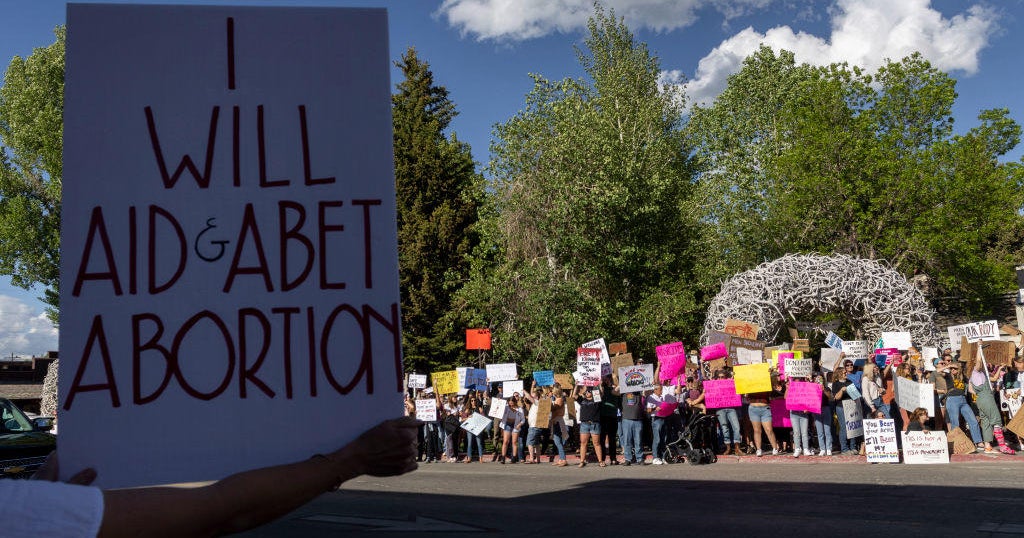Spain bans harassment or intimidation of women going for abortions
Madrid — Spain has criminalized the harassment or intimidation of women going for an abortion under new legislation approved on Wednesday by the Senate. The move, which involved changes to the penal code, means anti-abortion activists who try to convince women not to terminate their pregnancies could face up to a year behind bars.
The measure was proposed by Prime Minister Pedro Sanchez's Socialist party and will come into effect after being published in the official state bulletin in coming days.
Anyone trying "to impede [a woman] from exercising her right to voluntarily interrupt pregnancy" through "bothersome, offensive, intimidating or threatening acts" will face jail time of between three and 12 months, or community service, the text says.
In practice, the legislation criminalizes protests outside of abortion clinics. The ban also applies to the harassment or intimidation of healthcare professionals working at abortion clinics.
Staunchly Catholic Spain decriminalized abortion in 1985 in cases of rape, if a fetus is malformed or if a birth poses a serious physical or psychological risk to the mother.
The scope of the law was broadened in 2010 to allow abortion on demand in the first 14 weeks of pregnancy, but Spanish women still face obstacles. "Most" obstetrician-gynaecologists in the public sector refuse to carry out such procedures, the OMC doctors' association has said.
When going to a private clinic, women are sometimes confronted by anti-abortion activists who try and persuade them not to end their pregnancies.
As the legislation was being debated, anti-abortion activists from the Right to Life platform rallied outside the Senate against the "criminalization" of their protests.
"Praying is not a crime and we will continue to pray and offer our help to all those women who need it so that they can see that abortion is not the only solution," said spokeswoman Inmaculada Fernandez in a statement.
"More than 6,000 children were born last year thanks to the help of pro-life groups and none of the mothers regretted giving birth."
According to a 2018 study by ACAI, which represents abortion clinics, 89% of Spanish women said they had felt harassed when attending an abortion clinic, and 66% said they felt threatened.
Sanchez's government is also working on a law to ensure that all public hospitals will offer abortions, and further legislation that will allow 16- and 17-year-olds to end a pregnancy without permission from their parents as they currently can in the U.K. and France.
There is no federal law banning protests near abortion clinics in the U.S., but in 2020 the Supreme Court declined to take up challenges to two separate local laws that impose "buffer zones" around healthcare facilities. A federal law adopted in 1994 does ban the use or threat of force to obstruct or intimidate anyone seeking an abortion.





